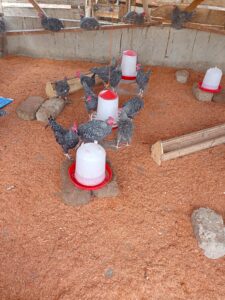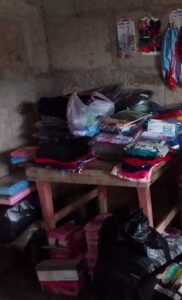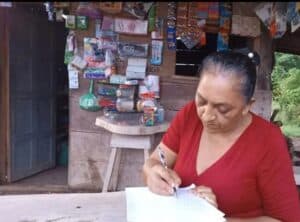
Menstruation Shouldn’t Be Stigmatized or Be a Barrier to Success
By Bridget Gyamfi – National Builder’s Corps (NABCO) Member

Periods shouldn’t be a barrier for girls!
Menstruation is one of the most beautiful natural phenomena in a person’s life. Despite its beauty, it is also an experience that is associated with humiliation meant to intimidate people who menstruate across Africa and other parts of the world.
Menstruation is often criticized or ridiculed by many cultures and societies, which affects women and girls negatively. Gender inequality, extreme poverty, humanitarian crises, deprivation and stigma attached to menstruation have silenced most women, who often face exclusion, neglect, and discrimination while menstruating.
Menstruation was perceived as dirty or shameful, prohibiting women and girls from discussing their menstrual health. This view contributed to restrictions women and girls faced during their period. At times, these restrictions were even self-imposed as most women and girls were told to fear handling food in the kitchen, participating in school activities, and joining social gatherings while on their period. This enforced the idea that they have less claim to public spaces, and that they were less able to participate in public life. Many women and girls around the world still suffer from menstrual related misconceptions and are encouraged to keep menstruation a secret. Schools, homes, hospitals, churches, mosques, and the media are not doing enough to educate the public about menstruation and ease the challenges that women and girls face. There is an urgency to address menstruation properly. Society will not see an end to teenage pregnancy, school dropouts, high illiteracy rates, or extreme poverty until the world learns to approach menstruation and menstrual health differently.
In this context, Self Help International’s Teen Girls Club champions menstruation every year in order to empower young girls in rural communities to understand that menstruation is a blessing and a fortunate thing to experience. In addition, Self-Help teaches girls about the reproductive system in general and educates them to understand, own, and manage their menstrual cycle.
Self-Help Teen Girls Club program officers conducted a survey to know who mentors the girls during their periods, which sanitary products the girls use during their menstruation, and how they access these sanitary products.
Most girls stated that their parents do not initiate any communication concerning their period, so they often keep it a secret. Some also said that their parents are not able to afford sanitary pads, so the girls try to earn a little money to pay for the products they need by collecting firewood or engaging in manual labor. Others also said they use handkerchiefs, pieces of cloth, and tissues when they have their periods.

Thank you, Massira!
The results of the survey clearly highlighted the need for increased access to menstrual hygiene products. Self-Help’s team worked to find a solution for girls to have access to menstrual products. Self-Help provided 200 reusable sanitary pads from Days for Girls to group participants. Massira, a locally driven organization committed to providing education and resources on menstrual, sexual, and reproductive health, donated reusable and disposable pads and other materials for club members.
Today, around 380 girls in the club have access to a reusable sanitary pad that lasts for 3 years. They feel confident to discuss their period, they understand their menstrual cycle, and they have control over it. The girls are very excited and have expressed so much gratitude and appreciation to Self Help International and Massira for the great intervention and support.

 Previous Post
Previous Post


